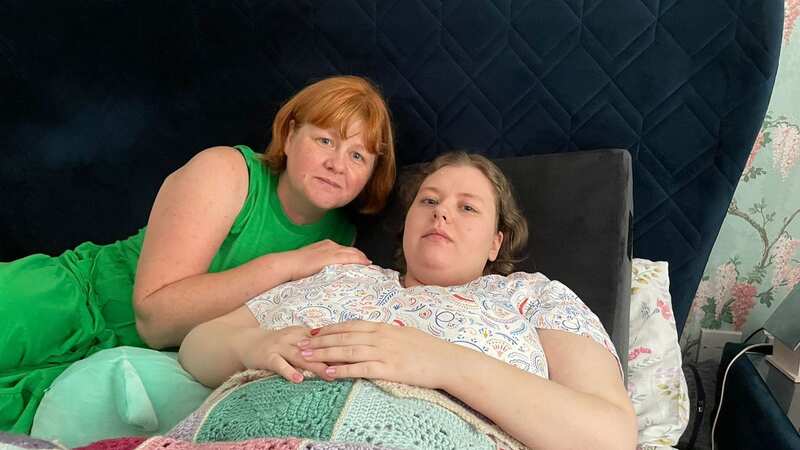Mum slams 'cruel' hospital after daughter's life-changing treatment is stopped

The mother of a daughter who can "no longer hold a full conversation" has said a hospital trust's explanation of why it withdrew her life-changing treatment is "cruel."
Hannah Clayton was diagnosed with postural tachycardia syndrome (PoTS) in September 2021 and had been receiving saline fluid infusions for a year intravenously over four hours twice a week, but the treatment was stopped on July 2. When receiving this treatment the 24 year old was able to live her life relatively normally, learning Japanese, reading and talking to friends and family.
But without these infusions, Miss Clayton is "bedridden" and "unable to hold full conversations," according to her mum Clare Clayton, 52. The Local Democracy Reporting Service submitted a Freedom of Information Request to the York and Scarborough Teaching Hospitals NHS Foundation Trust about the infusions being withdrawn by its drugs and therapeutics committee.
The response read: "The decision to stop initiating this treatment for new patients was based on a review of the published evidence. Decisions regarding the efficacy of treatments in the NHS are based upon published evidence, or in new treatments established through formal research trials."
"In this case, there was a lack of published evidence and IV saline treatment for POTS was not being evaluated within a research trial. Patients who were already receiving regular treatment were contacted by the consultant responsible for their treatment to establish an alternative plan for the management of their condition without reliance on regular long-term intravenous treatment."
 Teachers, civil servants and train drivers walk out in biggest strike in decade
Teachers, civil servants and train drivers walk out in biggest strike in decade
The trust also responded to other queries, saying the decision was not based on cost and that it had "comprehensively reviewed the evidence for IV saline fluid infusions for the treatment of patients with symptoms of POTS". It also said there was "insufficient published evidence that the treatment provides sufficient benefit for patients to justify continued long-term IV treatment."
The trust added: "Long-term intravenous treatment carries risks including infection, inflammation and damage to blood vessels. Based on this evidence review we do not offer this treatment, which is consistent with other hospitals in the NHS."
Mrs Clayton told Yorkshire Live: "So because of lack of supporting evidence they stop treatment, never thinking to ask the people it affects most? The alternative management they suggested, does not take into account our daughter's other conditions, or the fact that she is bed-bound. Have they ever thought about the cost to our daughters' life, who can no longer function cognitively, or hold a full conversation because the brain fog and confusion are back?"
"Or because she is dizzy when sitting up and feels faint. It's like saying 'here's what you could have had' and then taking it away. It's just cruel."
Mrs Clayton added: "Asking patients how treatment was going should have been part of their duty of care. Surely it is unethical to withdraw treatment without first discussing face to face with patients about how they feel their treatment is going."
Read more similar news:
Comments:
comments powered by Disqus

































